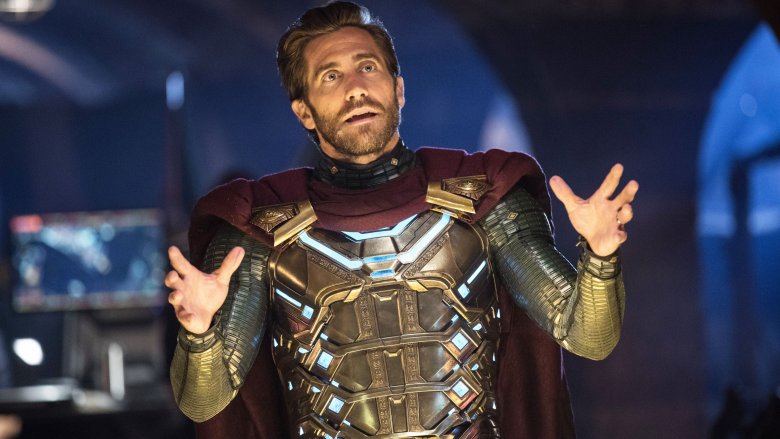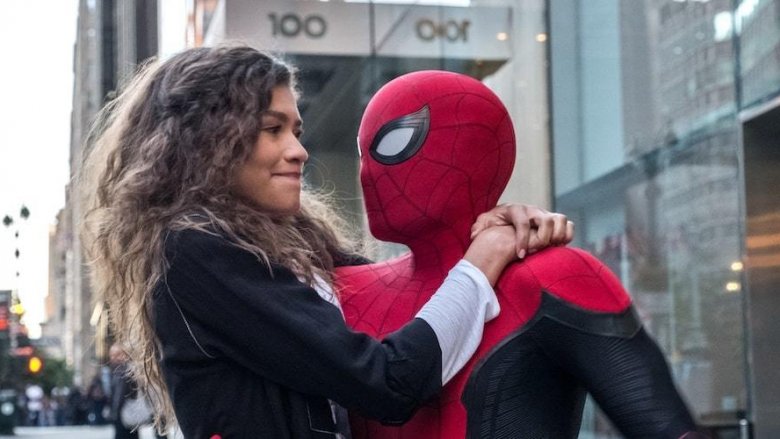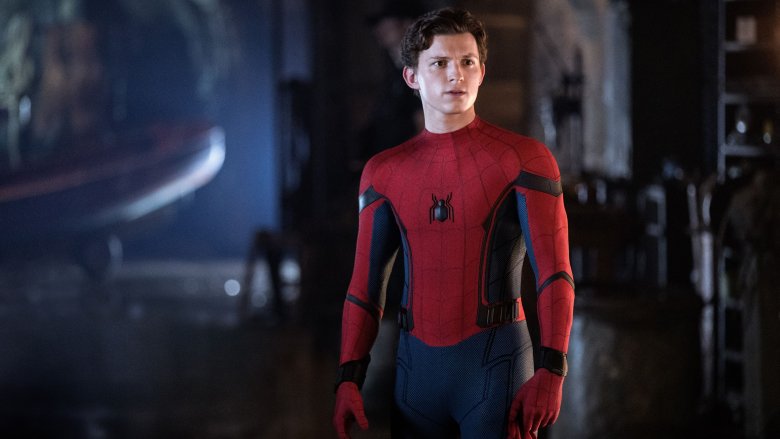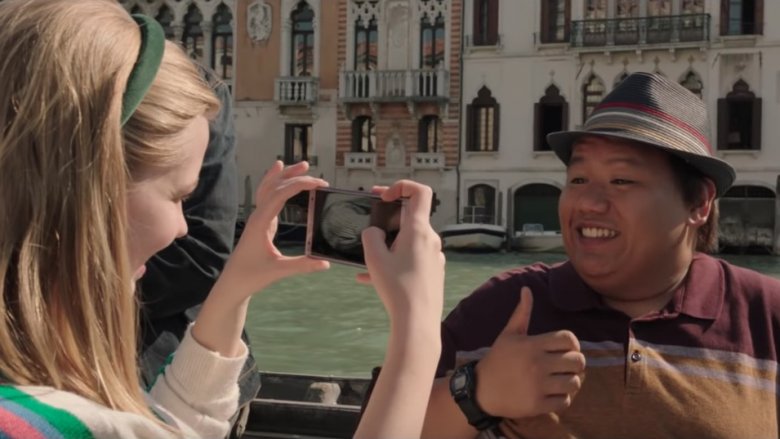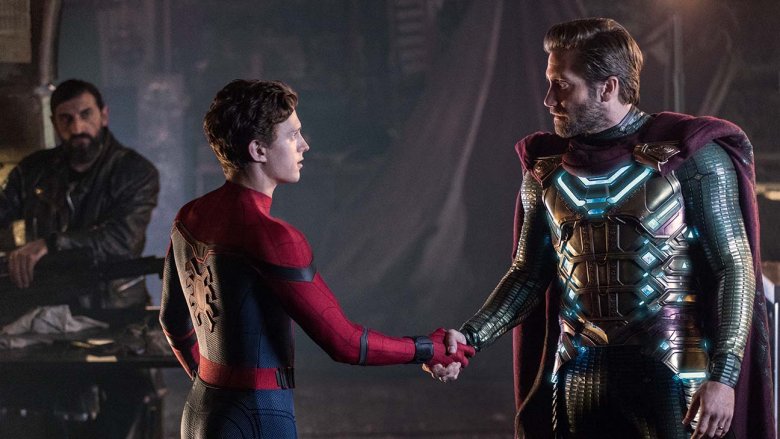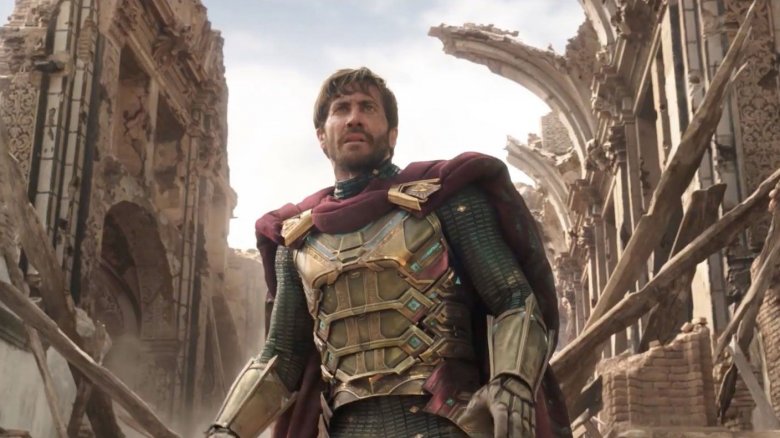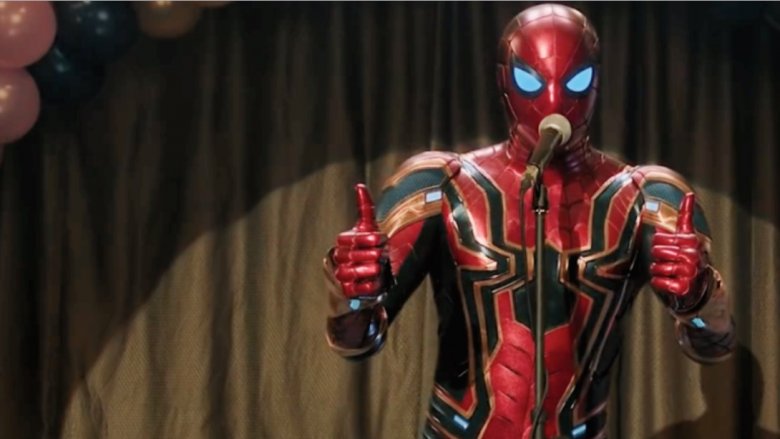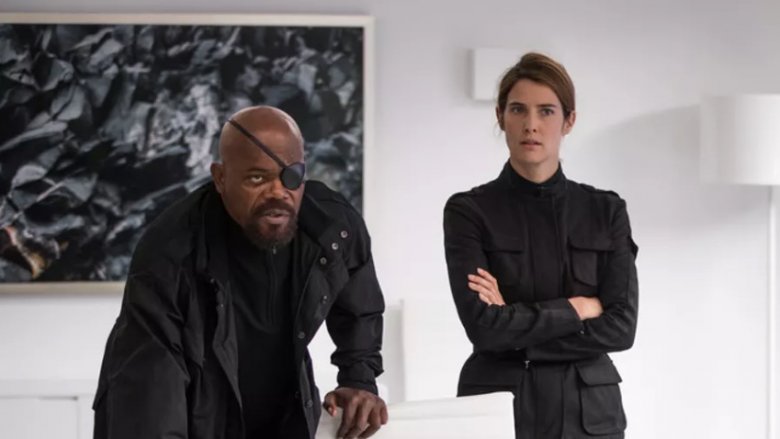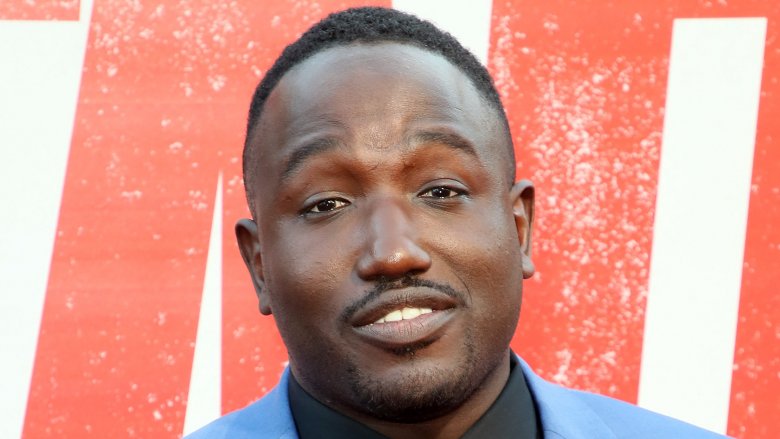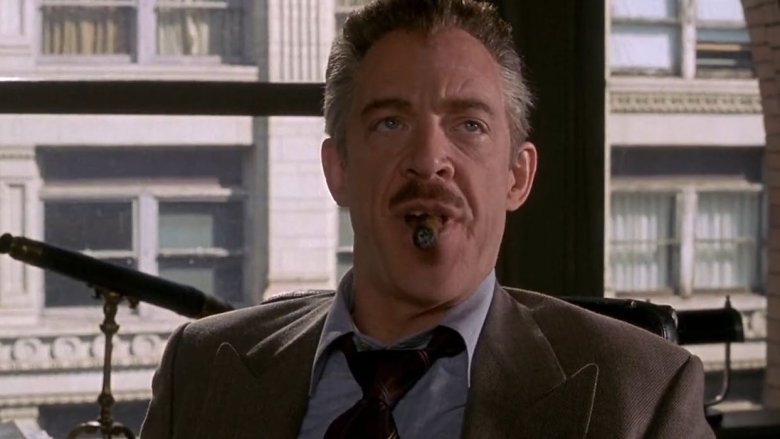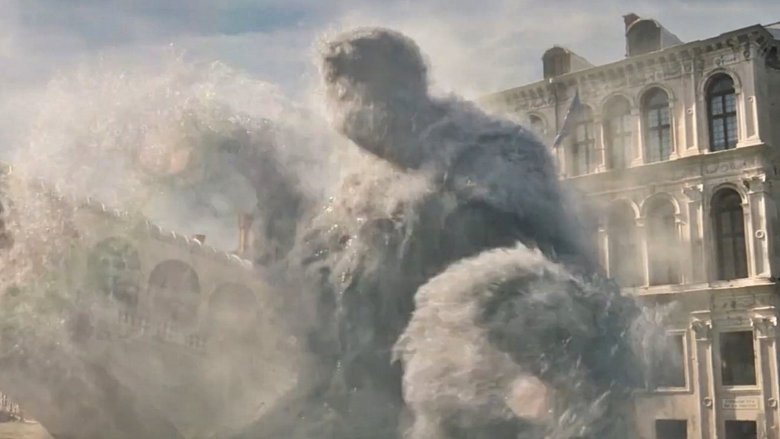5 Best And 5 Worst Things About Spider-Man: Far From Home
As if Captain Marvel and Avengers: Endgame didn't give you enough MCU action to last all year, we've now got the release of the newest Spider-Man film: Far From Home. While he doesn't go quite as far from home as he did in Infinity War — which saw everyone's favorite friendly neighborhood Spider-Man hanging out in space with a wizard — the sequel to Homecoming manages to deliver plenty of thrills, chills, and surprises. From the delight of finally seeing Mysterio on the big screen to seeing how the MCU will continue after the Snap (or "the Blip" as it's called in-universe now that everyone's back), there's plenty to love about the latest superhero offering from Marvel and Sony. Still, no movie is perfect, and for every great, powerful moment the film delivers there must also come a responsibility to acknowledge where the film came up short. Here are the five best and five worst things about Spider-Man: Far From Home.
Best: Tom Holland and Zendaya as Peter Parker and MJ
While Homecoming introduced the world to Zendaya's MJ, Far From Home brings her and Tom Holland's Peter Parker together romantically, and it's a delight. The two young actors are able to capture the awkward budding romance between the two high-schoolers with such natural chemistry that it's no surprise that many fans have assumed the two are dating in real life. Regardless, it's a sweet, engaging relationship that holds down the film as Spider-Man battles illusions, responsibilities, and his grief over Tony Stark's death. Without Zendaya and Holland's easy chemistry, the whole film could've easily fallen apart — it's only because the two seem right on the verge of something deeply important that you can relate to Spider-Man wanting to blow off his responsibilities just this one time.
This version of MJ's a bit more sarcastic and laconic than previous versions have been in movies and animated shows, but the core of the character — someone who cares deeply about Peter Parker and doing the right thing—shines through beautifully. Meanwhile, Holland's as great as ever, playing a Peter distinct from both Tobey Maguire and Andrew Garfield's unique conceptions of the character while remaining as recognizably Spider-Man as ever. Even though no one actually says "With great power comes great responsibility" in the film, the entire story and Peter's personality practically oozes with the reverberations of Stan Lee's famous catchphrase.
Worst: The embarrassment about referencing old Spider-Man movie plot points
One of the most energizing things about Spider-Man: Homecoming was its utter refusal to hit the same narrative beats as Sam Raimi's Spider-Man or The Amazing Spider-Man. Audiences were introduced to a Spider-Man who already had his powers, had already (presumably) lost his Uncle Ben, and had already learned about great power and great responsibility. Without the need to retread an origin story, Homecoming immediately announced that Peter Parker in the MCU was an entirely fresh reinvention of the character.
That said, it's getting to the point where the desire to avoid hitting beats that were already featured in previous iterations is becoming over the top. We're all as happy as the next person that we didn't need to see Uncle Ben get shot to teach Peter a lesson, but all Far From Home shows is a brief glimpse of a suitcase with Ben's initials. That such an integral person in Peter's life doesn't even get a mention feels actively bizarre by the second film.
That unwillingness to actually acknowledge older plot points goes beyond uncle Ben, though. Throughout the film, Aunt May and Happy Hogan refer to Peter's Spider-Sense as a "Peter Tingle." It's a fun way to show that the adults in Peter's life don't mind giving him a hard time and want to keep him humble with a goofy joke. However, when Spider-Man's audibly referring to it as a "Peter Tingle" in his final battle with Mysterio, it feels like the filmmakers are embarrassed to take it seriously.
Best: A very funny film
The overuse of "Peter Tingle" aside, Far From Home is as genuinely funny as you would hope. At this point, a sense of humor is as much a trademark of the MCU as high-flying superhero action and a lack of secret identities (think about it), and Far From Home doesn't disappoint on either score. From the hilariously bad "In Memoriam" slideshow that serves as a recap for anyone who didn't see Avengers: Endgame to Ned and Betty's summertime fling, Far From Home is consistently hilarious.
The comedic prowess of the cast is amazing, with Jacob Batalon's Ned Leeds proving to be an especially spectacular delight. Even better, Angourie Rice's Betty Brant gets a bump in screen time, and the results are sensational; her turn from stick-in-the-mud to overly-mushy romantic is hilarious. It's a superhero movie that would easily fit in with any number of European road trip comedies or high-school hijinx films, and after the non-stop death and desolation of Infinity War and Endgame, it's a welcome relief to enjoy the MCU on a more laid-back level again.
Worst: A muddled message
While the underlying subtext of Far From Home is pretty clearly about Peter learning that "with great power comes great responsibility," the actual way the film connects different parts of Peter's life is a lot less focused. Peter wants to rely on Mysterio because Tony Stark's death has put a lot of pressure on him, but why? The first film was about Peter learning to be a friendly neighborhood Spider-Man and turning down a spot with the Avengers, so the immediate turnaround after only one movie (the big team crossovers notwithstanding) feels weird.
Even with that, Peter's desire for a vacation is pretty relatable — it's not like he's letting a robber run off with money, he's just pretty understandably relieved that a seemingly magic-using superhero from another earth is willing to take down elemental super-demons. That's not exactly something that's in Spidey's wheelhouse to begin with, so the idea that he's somehow failing to live up to his potential rings false. Plus, he pretty willingly goes to fight the Elementals anyway, so it's not as if he's making some grand betrayal that he then needs to make up for. In fact, his only real mistake is trusting Mysterio, a mistake that seems pretty reasonable when you remember that Nick Fury (or at least, a Skrull pretending to be Nick Fury) trusts him. If the smartest man in the MCU trusts a super-soldier from another universe, wouldn't you?
Best: Mysterio finally appears on the big screen
It's been a long time coming, but we finally got to see Mysterio on the big screen. The illusionist who uses movie magic to trick and manipulate Spider-Man has seemed like a perfect fit for Spidey's cinematic adventures for as long as they've been making them. Surprisingly, though, we've never gotten a proper adaptation. A planned Spider-Man 4 by Sam Raimi was once rumored to have Bruce Campbell attached to play the bowl-headed supervillain in a quick cameo, but Far From Home gives the character the screen time that he's always deserved. Even better, Jake Gyllenhaal is phenomenal as the Machiavellian supervillain, functioning as a sort of director and project lead for a group of talented folks with a grudge against Tony Stark.
Anyone who saw Nightcrawler (not to be confused with the X-men character) would know that Gyllenhaal has the chops to play a truly unsettling villain, but the joy of watching him as Quentin Beck is how genuinely likable he is. It's so easy to see why Peter latches on to him as a surrogate mentor/big brother figure when Beck's giving him advice on superheroism and how to talk to girls. Once the trick is revealed and Peter (and the audience) sees him for what he really is, Gyllenhaal becomes even better. He seems genuinely annoyed and frustrated that Peter's getting in his way. It's a great performance and a great villain, and it's hard not to be disappointed when Mysterio's supervillain plot ends with his demise; all we can do is hope that the reports of his death are greatly exaggerated.
Worst: Why is Spider-Man basically Iron Man now?
Considering how much of Homecoming is about Peter essentially dealing with two opposing dads (Tony Stark and the Vulture), it makes sense that he'd spend a decent chunk of Far From Home mourning the loss of his billionaire mentor. However, the film goes beyond Peter wanting to live up to Iron Man's superheroism. By the time the credits roll, Peter Parker's basically become Iron Lad.
First, he gets bionic sunglasses that seem to basically be able to do anything related to technology. Then, he's given a ride from Tony's old pal and sidekick in a private plane, where he designs his new technologically-advanced super-suit. Even the villains he's fought in the movies to date all exist directly as a result of Tony Stark's poor decisions. The Vulture and Mysterio both held a long-lasting grudge against the AC/DC-loving superhero, and it's Spider-Man's job to stop them from using Stark Tech for evil. It's a pretty far cry from the dumpster-diving boy from Queens that audiences briefly saw in Captain America: Civil War, and it's a huge jump from the constantly down-on-his-luck and rent-hungry Peter Parker of the comics. Peter wanting to live up to the flawed ideal of Tony is a great concept in theory, but when most of his own storyline revolves so completely around Iron Man's, it chips away at Spider-Man as a viable character in his own right.
Best: The post-credits scene solves a plot hole before you can complain about it
If Nick Fury in the MCU has a superpower, it's the ability to see a trap coming. From Captain America: The Winter Soldier to Captain Marvel, we've seen numerous examples of Fury staying on top of things even when a trap gets sprung. He might be surprised about the why or the when of it all, but he can usually tell when someone's trying to manipulate him. That's a big reason why Peter (along with the audience) is willing to give Mysterio the benefit of the doubt in the film; if Fury trusts him, why shouldn't we?
That's why the post-credits scene is such a beautiful fix. When we see that the Skrulls Talos and Soren have been impersonating Nick Fury and Maria Hill, it's a great way for the filmmakers to have their cake and eat it too. Peter gets fooled by Mysterio because Nick Fury gets fooled by Mysterio, but if that were really true, it would take away from Fury's character. With Talos playing Fury the whole time, we get to enjoy Samuel L. Jackson's no-nonsense performance without actually needing Nick Fury to get bamboozled.
Worst: No return for Hannibal Buress
Homecoming had some incredible cameos and performances. Michael Keaton dazzled everyone with the most entertaining and charismatic villain performance since Willem DaFoe's Green Goblin in Spider-Man. Marissa Tomei made the most of her limited screen time. Chris Evans appearing as Captain America in a series of taped PSAs was delightful. Still, Hannibal Buress' laconic Coach Wilson nearly stole the show from everyone.
His bored delivery of "I'm pretty sure this guy's a war criminal now, but whatever" makes the Cap PSAs even better. While it doesn't necessarily make a whole lot of sense for a gym teacher to go on a class trip to Europe, it's hard not to feel like we were robbed of seeing Buress in Far From Home. Who wouldn't want to see what Coach Wilson got up to during "The Blip?" The other teachers (played by longtime comedic character actors J.B. Smoove and Martin Starr) add plenty of laughs to the film, but Far From Home is a lesser film without Hannibal Buress. All we can do is hope that he returns for the sequel... unless his red carpet shenanigans during the Homecoming premiere got him blacklisted from the MCU.
Best: The return of J.K.Simmons as J. Jonah Jameson
The Sam Raimi Spider-Man films are undeniably a product of their times. At turns both deeply embarrassed about superhero movies as an actual genre and deeply committed to full-on weirdness, there's plenty to love and plenty to loathe about the early-2000s superhero trilogy. However, one aspect of the films that's unquestionably a success is J.K. Simmons' casting as belligerent newspaper editor J. Jonah Jameson. Simmons was perfect, so adept at capturing the comic book character's manic energy and trademark flat-top that any other actor in the role would pale in comparison.
Luckily, we didn't need to worry. Far From Home's post-credits sequence features Simmons reprising his role as the Spider-Man-hating newsman, although there have been enough tweaks here that it's not just fan service for the sake of it. This JJJ seems more inspired by the Alex Jones style of "reporter" who's willing to spout any number of conspiracy theories via his video blogs if they back up a previously held bias. It's a savvy change to a character who's been at times deeply morally righteous in his reporting and almost always morally dubious when it comes to covering Spider-Man. Here's hoping he gets an even bigger role in the sequel.
Worst: Weightless CGI action scenes
In some ways, it's a good thing that Mysterio took so long to make it to the big screen; movie advances have brought CGI and mo-cap technology so far that it's no longer science-fiction to imagine a world where a movie special effects guy could trick a discerning audience. That said, Far From Home goes a bit too far in hinting that the Elementals aren't the word-ending threat that Mysterio says they are. Spider-Man's early battles with the water Elemental and the fire Elemental feel purposefully weightless and staged, almost like a criticism of other MCU fight scenes. As it turns out, that's on purpose — foreshadowing Mysterio's reveal that they really are weightless and staged.
However, just because the filmmakers made a creative decision on purpose doesn't mean it was the right one. If you're one of the millions of comic book readers or even casual Spider-Man fans who knew Mysterio was a bad guy to begin with, Spider-Man's fights against the holographic Elementals are largely boring. Without a real, concrete threat (which doesn't appear until the end of the movie when Mysterio's drones turn lethal), it's hard to get invested in what could be a cutscene straight out of a Spider-Man video game.
